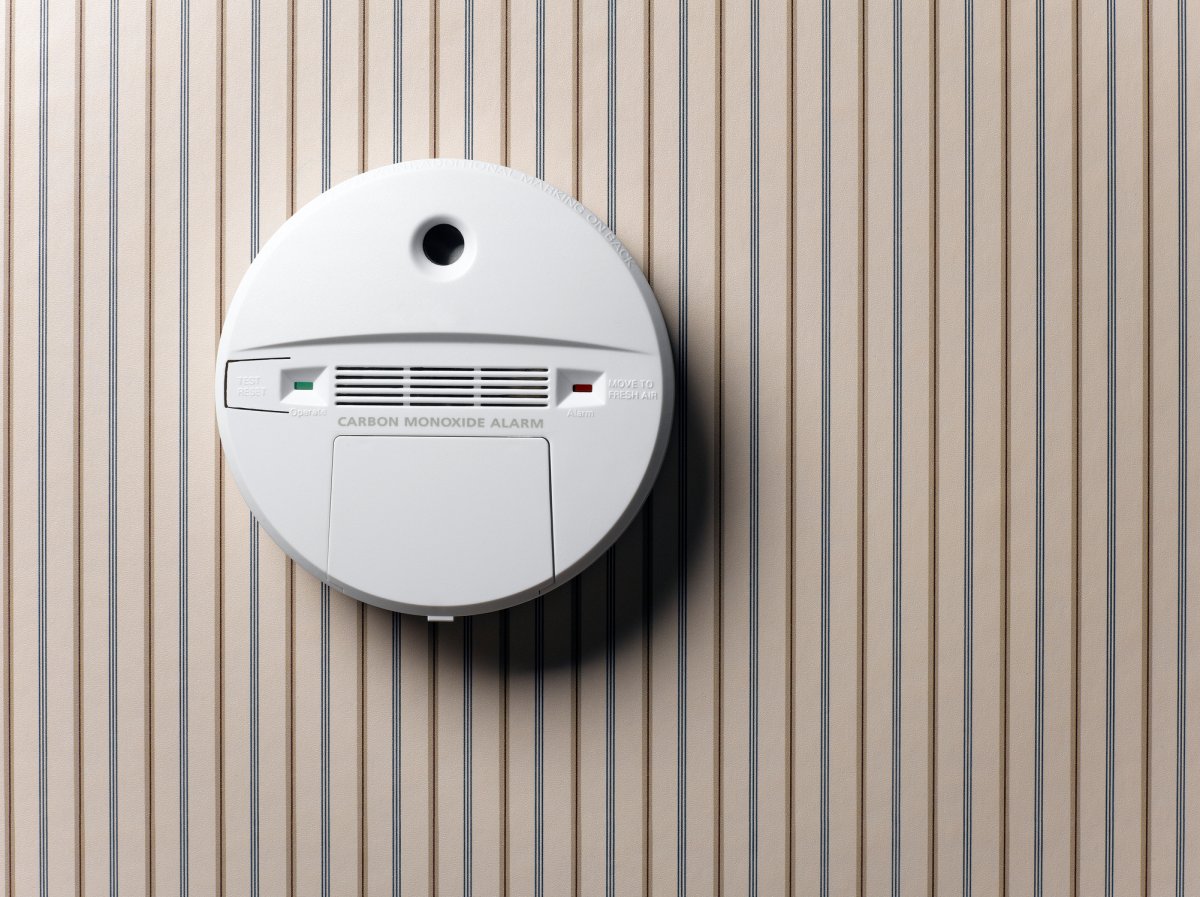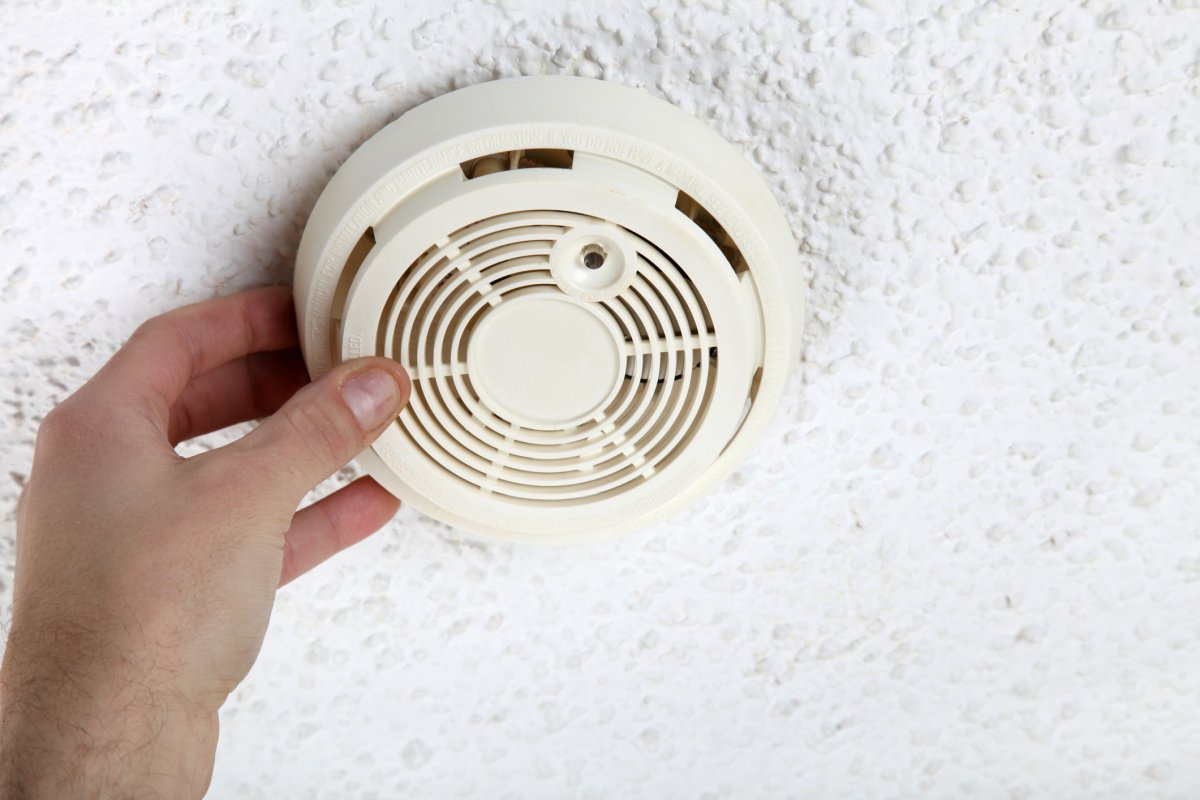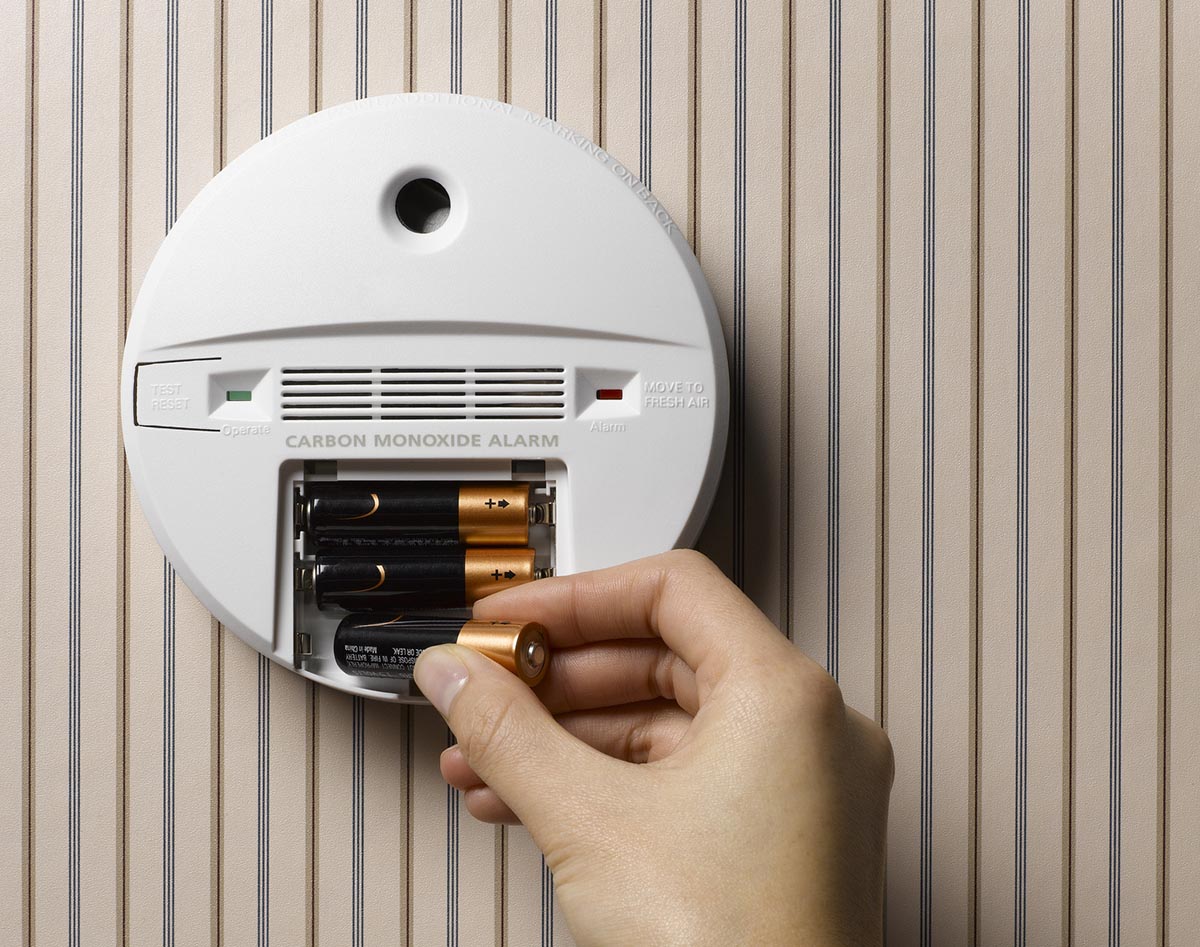

We may earn revenue from the products available on this page and participate in affiliate programs. Learn More ›
The kitchen is one of the busiest rooms of the home, especially when family or friends are visiting, so it can be annoying when the fire alarm keeps going off every time you cook. While it’s easy to learn how to stop a smoke detector from beeping, it’s more important to find out if there is an actual danger the smoke detector is trying to warn about before assuming everything is alright.
However, if the home seems safe but false alarms continue to happen when you cook, then it’s worth the time to figure out why the detector keeps going off so you can finally put a stop to that irritating smoke alarm sound. If you find that your smoke alarm is going off for no reason, use this guide to learn how to identify the problem, stop the fire alarm sound, and reduce the chance of false alarms in the future.
Typically, smoke alarms do not go off without a good reason.
In most situations, a smoke alarm functions as intended and will sound only if it is responding to heat or smoke in the area. If the smoke alarm keeps going off, then you should start by looking for possible dangers, like a hidden electrical fire. Similarly, if the carbon monoxide detector is beeping, then you should first take appropriate precautions to keep yourself and anyone else in the home safe. Wait until after you’ve verified that there isn’t an actual hazard before you focus on finding the cause of the false alarm.
If your cooking skills are questionable at best, then this could be the simple cause behind the false alarm, but a fire alarm randomly going off isn’t completely unheard of. Still, to ensure the home is safe in the case of an actual fire it’s important to ask why would a smoke alarm go off without smoke? Some reasons to consider include the age of the smoke alarm, the age of the batteries, the placement of the alarm, the heat and humidity levels indoors, and the accumulation of dust, dirt, and other debris inside the alarm.
Turn the range hood or an oscillating fan up to the highest setting.

Before trying to figure out how to turn off a hard-wired smoke alarm while you are cooking, there are a few methods you can try to reduce the risk of false alarms. Start by opening a nearby window or door to improve airflow and help any excess smoke escape. If it’s too hot or cold outdoors, then you can turn on the range hood above the stove to vent the smoke to the outside.
The best range hoods will have several fan speed options, so you can get rid of excess smoke in a hurry with a high speed or run the fan on low while cooking. Another option is to set up an oscillating fan to force smoke away from the smoke detector. While some people resort to waving a dish rag, cloth, or towel near the smoke alarm, turning the fan up to the highest setting to prevent smoke from reaching the fire alarm is easier and less tiring.
Move a portable detector to another room while cooking.
Another factor to consider when false alarms are a constant problem is the location of the smoke detector. It’s important to consider the proximity to the kitchen when you are figuring out where to put smoke detectors in the home. Generally, smoke detectors should be placed in central locations on each floor to detect any dangers, but placing the fire alarm too close to the kitchen can cause headaches for anyone cooking.
If you have a portable smoke detector, try moving it further from the kitchen while you are cooking. This will increase the distance between the smoke alarm and the source of the smoke, reducing the risk of false alarms. A similar tactic can be used with carbon monoxide detectors that tend to go off when you are cooking; just make sure to move the detector back into position when you are done in the kitchen.
Cover the unit with a dishcloth.
Preventing the smoke from actually reaching the smoke detector can be an effective way to stop that annoying smoke detector beeping during a false alarm. Simply tie a dishcloth over and around the smoke detector to block the smoke. Another method is to use a shower cap and rubber band to cover the smoke detector entirely, or to wrap the smoke detector in plastic wrap.
However, if you choose to cover the smoke detector using one of these methods, it’s essential that you remember to uncover the unit when you’re done cooking. Otherwise, the smoke detector will be useless during an actual home emergency.
Temporarily remove the batteries.

It’s possible to temporarily disable the smoke detector by removing the batteries from the unit. Even the best smoke detector will be useless without a power source, but this method should only be used as a last resort since it leaves the home vulnerable in the case of an emergency. With this in mind, it’s important to replace the batteries as soon as you are done cooking.
Additionally, some smoke detectors become more sensitive when the batteries start to die, which is why you need to install new batteries about once or twice a year. When you replace the batteries, you should take some time to learn how to reset a smoke alarm so you can test the unit and ensure that it’s working properly.
Replace it with a new, less-sensitive smoke detector.
When false alarms are a constant irritation, temporary solutions are not the best option to solve the problem. Instead, you should either move the detector’s location to a better spot or invest in a new, less-sensitive smoke detector. Generally, there are two primary types of smoke detectors: an ionization smoke detector and a photoelectric smoke detector. The International Fire Chiefs Association recommends having at least one of each type in a home, or a dual-sensor model.
However, ionization smoke detectors react to steam, atomized fats, and other non-smoke particles, making them a poor choice for the kitchen. Instead, it’s a better idea to switch to a new photoelectric smoke detector for the spot near the kitchen to prevent the alarm from constantly sounding every time you cook, since photoelectric smoke detectors respond only to actual smoke.
